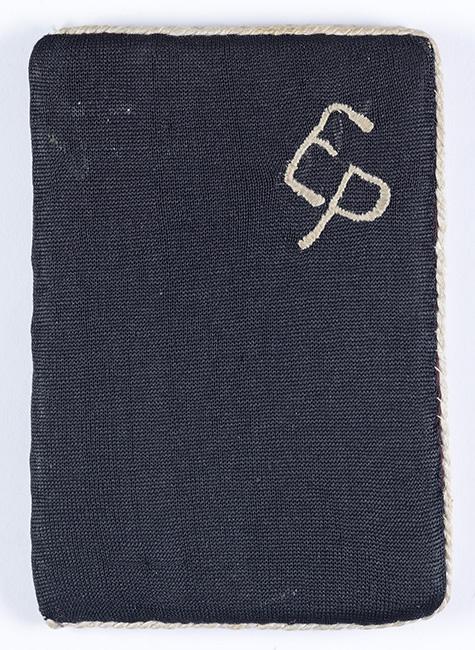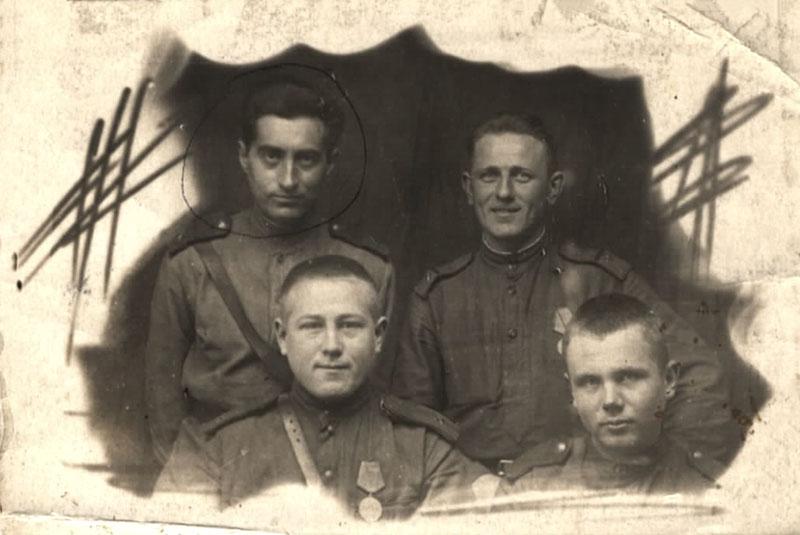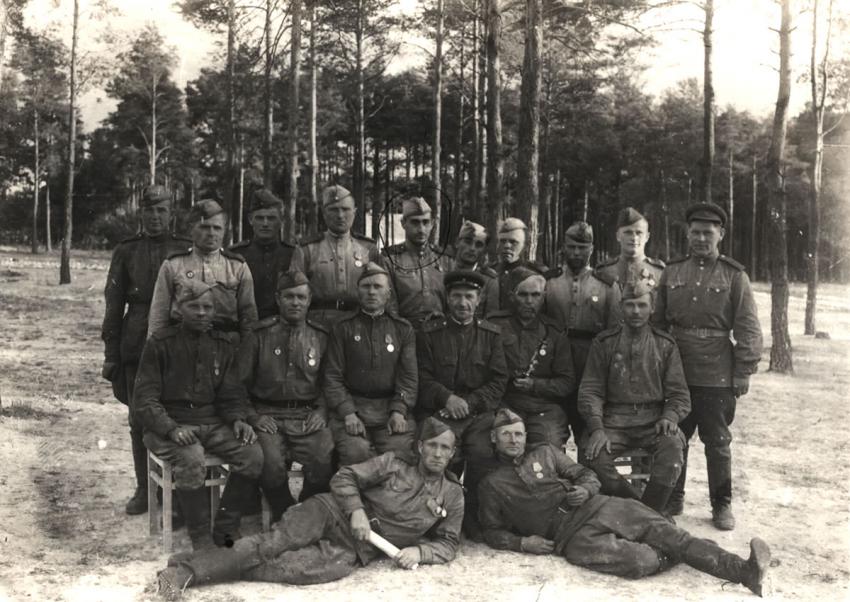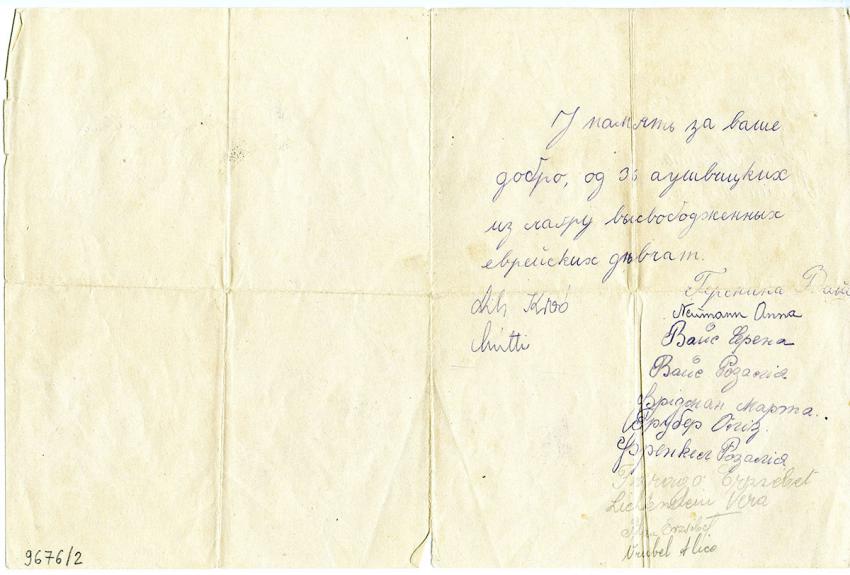
Yad Vashem Artifacts Collection
Donated by Vladilyna Rubashevsky, Kiryat Ono







Sunday to Thursday: 09:00-17:00
Fridays and Holiday eves: 09:00-14:00
Yad Vashem is closed on Saturdays and all Jewish Holidays.
Entrance to the Holocaust History Museum is not permitted for children under the age of 10. Babies in strollers or carriers will not be permitted to enter.

Yad Vashem Artifacts Collection
Donated by Vladilyna Rubashevsky, Kiryat Ono







With the outbreak of the war between Germany and the Soviet Union in 1941, Yehudah Rubashevsky, from the city of Kharkov in Ukraine, was drafted into the Red Army.. Rubashevsky was sent to the front and served as a wireless operator in the Second Division of the Artillery Corps. Members of his family, as well as his wife and two children, were evacuated to the city of Saratov, and thus they survived.
In January 1945, Rubashevsky's unit arrived at the gates of Auschwitz and participated in the liberation of the camp. Since Yehudah Rubashevsky was the only soldier who spoke Yiddish, he was appointed to take care of a group of 36 young Jewish women who had survived the camp.
Just before the women left the camp to be transferred for rehabilitation, they sewed a wallet for Rubashevsky on which they embroidered his initials. Inside the wallet presented to Rubashevsky there was also a thank-you letter signed by some of the women.
A short time after their departure, Rubashevsky's unit left Auschwitz as well, and continued to advance with the Red Army front. Rubashevsky was discharged from the army with the rank of First Sergeant immediately after the victory in 1945. A few weeks before his death in Kharkov, Ukraine in 1973, he asked his daughter to try to find out what happened to the young women he had met in Auschwitz. Yehuda's daughter eventually immigrated to Israel and she brought the wallet to Yad Vashem and asked that an attempt be made to discover the fate of the women.
An inquiry was opened with a view to locating the women whose names are recorded in the thank-you letter. The investigation revealed that they had apparently been deported to Auschwitz from Hungary or Carpathian-Ruthenia, but the attempt to discover the identities of the girls, to understand what happened to them after the war and to reacquaint them with the gift they had given to the Jewish Red Army soldier who looked after them after the liberation was fraught with difficulties.
Over the years, with the expansion of possibilities for access to various archives throughout the world, the investigation was widened and one of the women who signed the letter was identified as Olga Klein who married Bernard Kreisman after the war. They immigrated to Israel and settled in Haifa. Though Olga passed away in 1984, further research enabled us to locate her three sons who confirmed that she was indeed the Olga Klein that we were searching for. We in the artifacts collection feel considerable satisfaction that we were able to fulfill the wishes of Yehuda Rubashevsky to find at least one of the young women who showed gratitude to him in the difficult days after liberation.
Attempts to research the fate of the rest of the women have not yet succeeded, but the investigation continues.
Yad Vashem Artifacts Collection,
Donated by Vladilyna Rubashevsky, Kiryat Ono

Thank you for registering to receive information from Yad Vashem.
You will receive periodic updates regarding recent events, publications and new initiatives.

"The work of Yad Vashem is critical and necessary to remind the world of the consequences of hate"
Paul Daly
#GivingTuesday
Donate to Educate Against Hate


Worldwide antisemitism is on the rise.
At Yad Vashem, we strive to make the world a better place by combating antisemitism through teacher training, international lectures and workshops and online courses.
We need you to partner with us in this vital mission to #EducateAgainstHate
The good news:
The Yad Vashem website had recently undergone a major upgrade!
The less good news:
The page you are looking for has apparently been moved.
We are therefore redirecting you to what we hope will be a useful landing page.
For any questions/clarifications/problems, please contact: webmaster@yadvashem.org.il
Press the X button to continue



